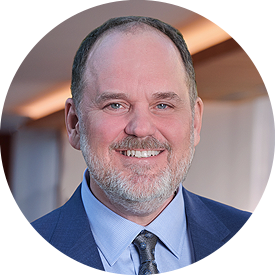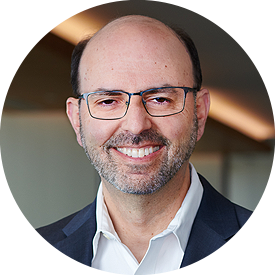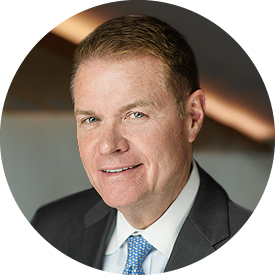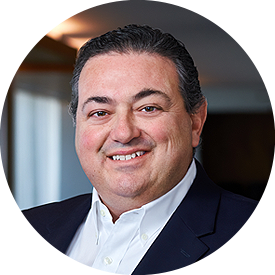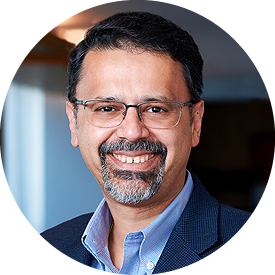Understanding what your health insurance covers, what you owe, and what resources are available to help pay for your care during the kidney disease journey can be confusing.
In this article, we briefly summarize the financial aspects of kidney disease and the different resources available.
Key Points
- End-Stage Renal Disease and kidney failure treatment are expensive, with many people requiring help to pay for the care they need.
- The main types of health insurance for kidney disease are Medicare, Private health insurance, and Medicaid.
What is Health Insurance?
Health insurance is a policy that an individual takes out to ensure that they have coverage for the costs of healthcare services that they may need. Health insurance can protect you from the high costs of healthcare, especially for those living with chronic diseases such as kidney disease.
To get coverage, you pay a premium (monthly bill) to a provider for your insurance coverage.
In the U.S., health insurance is divided into private and public health insurance. For private health insurance, you pay the premiums yourself, or the costs are split with your employer. There are two public health insurance programs in the U.S., Medicaid, and Medicare, with the government paying some or all of the costs.
Federal Government Health Insurance
What is Medicare?
9 out of 10 or 90% of Americans with ESRD have Medicare. Medicare is a federal government health insurance program for:
- Any patient with ESRD (end-stage renal disease)
- Patients over the age of 65
- Certain people with disabilities and those who have received SSDI for two years
Different parts of Medicare help patients cover specific services. Medicare Part A is hospital insurance that covers inpatient hospital stays, hospice care, care in a skilled nursing facility, and other home healthcare. Medicare Part B is medical insurance that covers specific doctor’s visits, medical supplies, outpatient care, and preventative care services. The last part of Medicare is Part D, prescription drug services, which help patients cover the cost of prescription drugs.
You can get Medicare coverage in two main ways: Medicare Advantage and Original Medicare. Original Medicare includes Part A and Part B, with the option of a Medicare Supplement Insurance (Medigap) policy to cover remaining healthcare costs. Medicare Advantage is a Medicare-approved plan by a private company that offers another option to Original Medicare for your drug and health coverage.
Medicare for Kidney Failure
For patients with ESRD or kidney failure, you are able to get Medicare no matter how old you are if you meet the following criteria:
- You require regular dialysis, or you have had a kidney transplant.
- Your kidneys no longer work properly (severe damage).
- One of the following:
- You are eligible for getting Railroad Retirement or Social Security benefits.
- You have worked the specified amount of time under the Railroad Retirement Board as a government employee or Social Security.
- You are the dependent child or spouse of a person who meets the above-mentioned criteria.
Medicare coverage for kidney failure works differently from other types of Medicare eligibility. If you are eligible for Medicare coverage based on having ESRD, and you don’t sign up immediately, your coverage may take up to 12 months to start.
If you are a CKD patient on dialysis, your Medicare coverage typically has a four-month waiting period before it starts. This does not mean that Medicare will not cover surgery and other services that may be needed to start dialysis. However, if you complete at-home dialysis training, your Medicare coverage starts the month you begin regular dialysis.
You can find more information about Medicare coverage for ESRD from the following resources:
- NIH – Financial Help for Treatment of Kidney Failure
- The American Kidney Fund – Insurance and Costs for Dialysis
- National Kidney Foundation – Insurance options for people on dialysis or with a kidney transplant
Joint Federal-State Programs
What is Medicaid?
Medicaid is a program that is run jointly by federal and state governments that provides low-cost or free health coverage for low-income individuals, people with disabilities, pregnant women, the elderly, families, and children. Some states extended their Medicaid programs to cover populations below a specific income level.
Some Medicaid programs may pay for your kidney care directly, while some use private insurance companies to provide coverage. While Medicaid has to follow federal guidelines, costs and coverage may differ from state to state.
Other Federal Programs
The Social Security Administration provides financial assistance through Supplemental Security Income (SSI) and Social Security Disability Insurance (SSDI).
SSI pays a monthly stipend to disabled adults and children who earn below a certain income and do not own any financial assets. At the same time, SSDI pays a monthly stipend to those who have paid a certain amount of Social Security taxes and can no longer work. There is normally a five-month hold period before SSDI payments start.
Other State Programs
Other state programs that may provide help include:
- State Pharmaceutical Assistance Programs (SPAPS)
- State Health Insurance Assistance Programs (SHIPS)
- Medicare Savings Programs
Talk to your transplant or dialysis clinic social worker to find out if your state has a State Kidney Program.
Private Health Insurance
Some CKD patients with ESRD or kidney failure have private health insurance that will cover the cost of their care.
What Types of Private Health Insurance Help With Kidney Disease?
- Group health insurance. This insurance can be purchased through an employer, a family member’s employer, or through a union. From the time you have been diagnosed with ESRD and become eligible for Medicare for kidney failure, your group health policy will typically pay for the first 30 months. After the initial 30 months, a group plan can work in conjunction with Medicare to cover any deductibles, copays, or coinsurance.
- Individual health insurance. Any individual can purchase this coverage for themselves and their family. The Health Insurance Marketplace has available plans for legal residents in the U.S. who do not have any other health insurance options, such as group health insurance. It is important to note that you cannot enroll in a Health Insurance Market plan if you have Medicare.
- Medigap (Medicare Supplemental Insurance). This is an extra health insurance policy offered by a private company to help cover costs that Original Medicare does not cover. These costs include deductibles, copays, and coinsurance. Federal law protects the rights of individuals over the age of 65 to purchase a Medigap plan. ESRD disease patients on dialysis, who are over the age of 65, might not be able to purchase a Medigap plan in certain states.
Help for Special Populations
There are different programs to help specific populations, include the following:
- U.S veterans
- Active duty members, their families, military retirees
- American Indians and Alaska Natives
- People with disabilities
- Job seekers with disabilities
- People in need of a kidney transplant (your care provider will be able to help you find a transplant program in your state)
- Potential organ donors
Kidney Transplant Assistance
Resources for patients undergoing a kidney transplant include:
- RemoTraC
- The American Transplant Foundation Patient Assistance Program
- American Organ Transplant Association
- National Living Donor Assitance Center
Prescription Drug Resources
Some private health insurance and Medicare do not automatically include prescription medication coverage in their policies. You will need to pay out-of-pocket for any prescription medication if you don’t enroll in Medicare Part D or in your private health insurance prescription drug policy.
Prescription medication can be costly, and if you cannot afford to pay for your medicine, there are programs to help that you may be eligible for.
- State Pharmaceutical Assistance Program. This program is only available in some states and limits prescription drug costs for patients who are elderly or have a limited income.
- BenefitsCheckUp. The National Council on Aging offers this service and provides resources for seniors with limited income to acquire help with medicines, healthcare, and other needs.
- GoodRx. This is a coupon service for FDA-approved drugs that can be used at over 70,000 pharmacies across the U.S. Patients may find that some coupons allow them to acquire some medications cheaper than what their insurance provides.
- Blink Health. This organization has negotiated prices for approximately 15,000 medicines that may cost less than what you’d pay with your insurance.
- Medicine Assistance Tool. Some drug manufacturers have in-house programs that provide patients (according to certain guidelines) with low-cost or free drugs.
- RxAssist. This online resource lists different drug company assistance programs, copay help, state programs, discount drug cards, and other services.
- NeedyMeds. This organization provides a list of resources and programs that help patients pay for medical supplies and medicine.
- National Kidney Foundation. The NKF, through collaboration with Watertree Health, offers a free prescription discount card. This card can be used for discounts on most generic and brand-name drugs at over 60,000 pharmacies across the U.S.
- RxOutreach. This non-profit, mail-order pharmacy provides patients in need with medicine through their websites or by phone.
Additional Financial Assistance Programs and Grants
- The ESRD National Coordinating Center Patient Grant Library
- PAN Foundation
- American Kidney Fund
- Patient Services Incorporated
- Single Mothers Grants
- The Assistance Fund
Panoramic Health
At Panoramic Health, we work with our patients to understand their health goals and develop a comprehensive treatment plan tailored specifically to their needs. We offer patients the holistic care coordination that they deserve and walk with them through every step of their CKD journey. Our value-based care platform and seamless care coordination helps reduce costs through better care management, creating a pathway for our patients to get the care they need while lowering overall healthcare costs.




